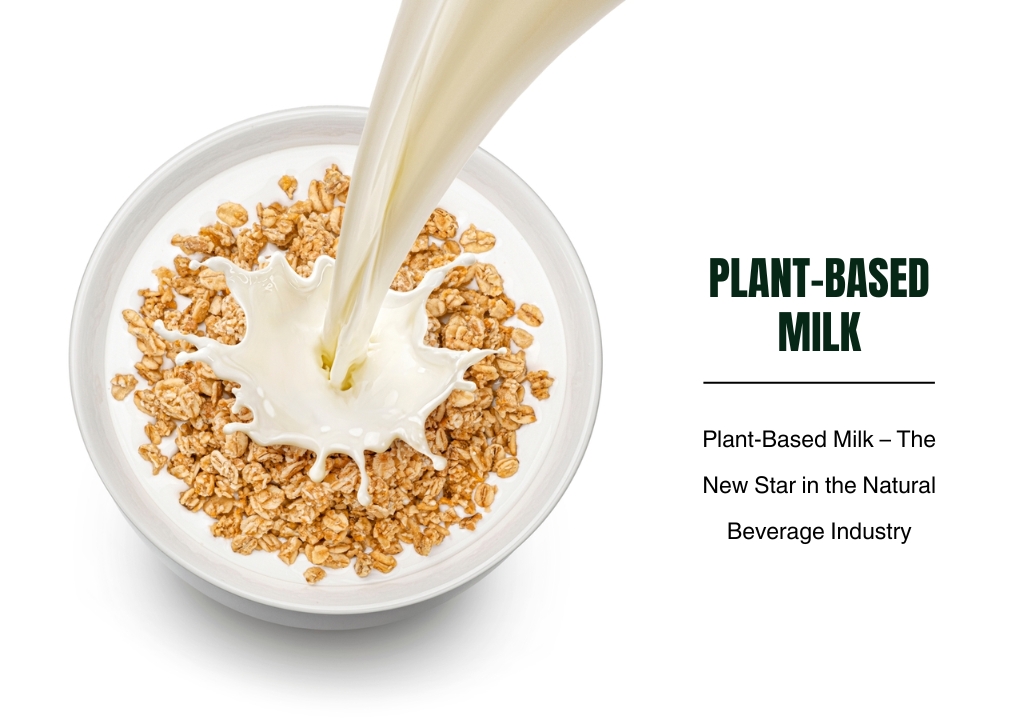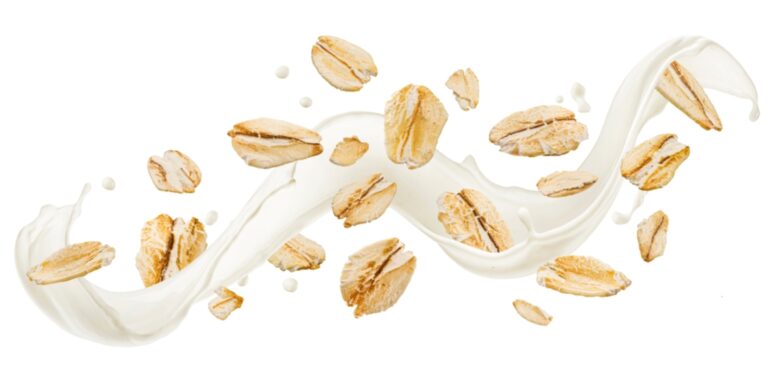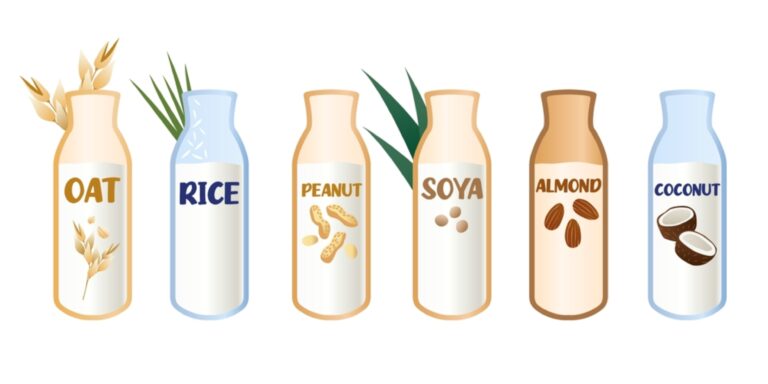Plant-Based Milk – The New Star in the Natural Beverage Industry

Global Consumer Trends Toward Plant-Based Products
In recent years, the "plant-based" lifestyle has evolved from a temporary trend to a robust movement, gaining popularity in countries such as the USA, UK, Germany, Japan, and South Korea. Consumers are no longer just seeking products without animal ingredients; they also prioritize environmentally friendly options that promote good health.
Plant-based milk, derived from various nuts, grains, and legumes, has proven its value in the beverage market: it's lactose-free, low in cholesterol, and rich in vitamins and minerals, making it ideal for a wide range of consumers, including vegans, lactose-intolerant individuals, and those pursuing a healthy diet.

Popular Plant-Based Milk Varieties in the Global Market
There are various types of plant-based milk produced from specific raw materials, each offering unique characteristics. Some notable varieties include:
- Almond Milk: Light, low in calories, and popular in the USA and Europe.
- Oat Milk: Naturally sweet, easy to drink, suitable for both adults and children. This product has the fastest-growing market share in many developed countries.
- Soy Milk: High in protein, smooth texture, and a long-standing choice in the industry.
- Walnut Milk, Cashew Milk, Coconut Milk: Premium products that cater to specific consumer groups or niche markets.
Each raw material brings distinct flavors, nutritional values, and potential for product development tailored to different markets.

The Importance of Raw Material Quality – A Key to Plant-Based Milk Success
In plant-based milk production, the quality of raw materials is a critical factor. Nuts and grains must meet high standards, such as organic certification (Organic), non-GMO (Non-GMO), gluten-free (Gluten-free), and comply with food safety regulations.
The origin of the raw materials – including growing regions, climate, cultivation conditions, and harvesting processes – all impact the final product's quality. For instance, oats from Northern Europe tend to have a richer flavor and better consistency, while almonds from California have a higher oil and protein content, making them ideal for formulations that require a natural fat profile.
Selecting high-quality raw materials not only ensures superior products but also helps prolong shelf life and ensures the product can meet the strict standards of international export markets.
Key Considerations in the Production Process of Export-Quality Plant-Based Milk
To meet international demand, the production process of plant-based milk must be optimized:
Recipe Balance: The fat content, sweetness, and flavor must be adjusted to cater to regional tastes.
Advanced Processing Technologies: UHT sterilization, HTST sterilization, enzyme treatment, or emulsification techniques help stabilize the milk’s structure and extend its shelf life.
Packaging and Labeling Standards: Packaging must not only meet hygiene standards but also ensure sustainability, with recyclable materials.
Export Certifications: Certifications such as FDA (USA), EU Organic, HALAL, and HACCP are essential to access global markets.
Additionally, the ability to customize formulas flexibly (OEM/ODM) based on each partner's requirements is an important factor that helps manufacturing facilities remain competitive and expand international collaborations.

Plant-Based Milk – An Opportunity for Those Who Want to Lead the Trend
Plant-based milk is not just an alternative to dairy milk – it represents the future of the natural beverage industry. With a vast market potential, the ability to diversify products, and increasing consumer demand, it is an ideal opportunity for businesses looking for sustainable, creative, and distinctive paths.
A deep understanding of raw materials and production processes is the foundation for developing high-quality plant-based milk products that align with the global F&B industry's trends.
